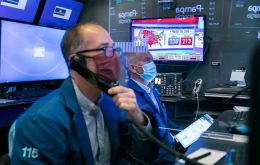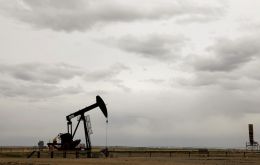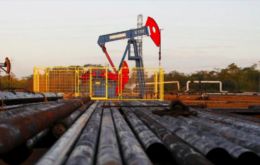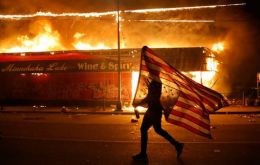MercoPress. South Atlantic News Agency
Tag: oil prices
-
Tuesday, February 9th 2021 - 08:43 UTC
Argentine oilseed crushers say they reached a deal to hold down domestic edible oil prices

Despite confusing news from Argentina following president Alberto Fernandez's announcement that he is prepared to reimpose levies on grains and oilseeds exports if food prices keep increasing, oilseed crushers said they had reached a deal with the government to hold down domestic edible oil prices.
-
Tuesday, November 10th 2020 - 09:39 UTC
US markets react strongly to president-elect Biden's announcement and Pfizer vaccines results

The S&P 500 ended higher but closed just shy of a record on Monday as investors bet that a full economic reopening was finally in sight following the first positive data from a late-stage Covid-19 vaccine trial.
-
Thursday, August 20th 2020 - 10:05 UTC
Oil industry's recovery is incomplete but sustainable

Throughout the summer, oil’s recovery from its devastating crash has looked somewhat dubious. While the price of crude rebounded somewhat, it did not wholly regain its pre-pandemic strength. And while the nations of OPEC+ put measures in place to cut production and close the gap between supply and demand, certain nations involved hinted at the reluctance to keep cuts in place. These factors, coupled with the lingering potential of fresh “waves” of the coronavirus, have kept us from being overly optimistic about the state of oil.
-
Tuesday, August 18th 2020 - 15:50 UTC
Falkland Islands and oil companies new approach to “stranded assets”

An article in World Oil by Laura Hurst refers to the term “stranded assets” and mentions the case of the Falkland Islands oil industry: the discovery a decade ago of as much as 1,7 billion barrels of crude offshore the British Overseas Territory, and rather than the next frontier, the project to extract energy risks being added to a list of what companies call “stranded assets” that could cost them huge sums to mothball.
-
Wednesday, August 12th 2020 - 08:38 UTC
US inventories of crude fall helping to move oil prices higher

Oil prices moved higher on Wednesday after an industry report showed that U.S. inventories of crude fell more than analysts had expected, bolstering hopes that fuel demand in the world's biggest economy can weather the coronavirus pandemic.
-
Monday, August 10th 2020 - 07:55 UTC
Oil prices climbing on prospects of a stimulus deal to help US economy

Oil prices climbed in early trade on Monday, clawing back over half of Friday's losses, on hopes for a stimulus deal to shore up the U.S. economic recovery and a pledge from Iraq to deepen its crude oil supply cuts.
-
Tuesday, July 21st 2020 - 08:53 UTC
Chevron buys Noble Energy in a US$ 5 billion all stock deal

Chevron said Monday it would buy Noble Energy in a US$ 5 billion all-stock deal, bolstering its shale presence as a plunge in crude prices have made assets cheaper. The deal, the largest in the U.S. energy sector this year, comes more than a year after Chevron abandoned its offer for Anadarko Petroleum, outmaneuvered by Occidental Petroleum higher bid.
-
Monday, June 1st 2020 - 08:49 UTC
Oil prices fall because of concerns about extended rioting in major US cities

Oil prices fell due to concerns about riots in major US cities that could staunch demand after trading higher on optimism that OPEC would extend or enhance production cuts at a meeting in June.
-
Friday, May 22nd 2020 - 08:41 UTC
Oil prices slump after China omits 2020 economic growth target

Oil prices slumped on Friday after China's decision to omit an economic growth target for 2020 renewed concerns that the fallout from the coronavirus pandemic will continue to depress fuel demand in the world's second-largest oil user.
-
Friday, May 15th 2020 - 08:13 UTC
OPEC slashes 2020 global oil demand because of the virus recession

OPEC again slashed its forecast for global oil demand this year as the coronavirus outbreak causes a global recession, although it said record supply cuts by the group and other producers were already helping rebalance the market.
